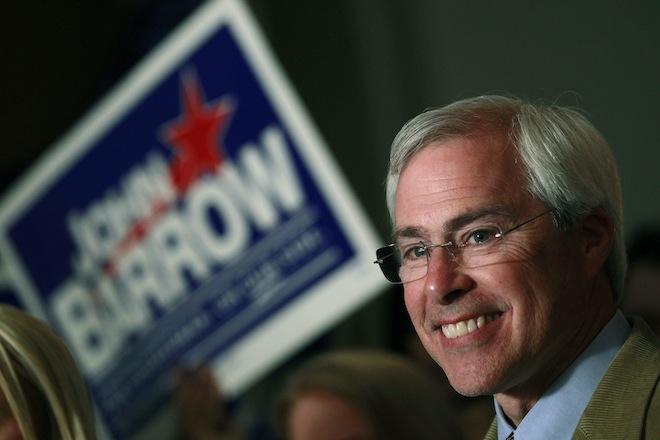Rep. John Barrow (D-GA) on Tuesday called on congressional leaders to reconvene the super committee – a panel of 12 lawmakers originally tasked with deficit reduction in 2011 – in order to replace automatic budget cuts set to be triggered on March 1, known as the sequester.
The threat of sequestration, large across-the-board cuts, was meant to spur compromise in reducing the deficit among members of the super committee. The body was in effect intended to avoid the sequester, and obviously that hasn’t happened. Barrow, however, believes Congress deserves a second chance to sort its own mess out.
“Despite the failure of the super committee to accomplish their goals last year, I am hopeful that, having learned more about the dire consequences of the sequester, we have a new sense of urgency to succeed if given the chance,” Barrow said in a letter addressed to congressional leaders. “Our constituents certainly understand the cost of inaction. I believe this is the most reasonable course of action and the most likely to be successful.”
Read Barrow’s full letter below:
Dear Speaker Boehner, Leader Pelosi, Majority Leader Reid, and Minority Leader McConnell:
I write to urge you to immediately reconvene a meeting of the Joint Select Committee on Deficit Reduction, or “super committee,” for the purpose of finding targeted spending cuts to replace the sequester.
After a two month delay, indiscriminate cuts to many areas of domestic spending are set to hit on March 1. Both defense and non-defense accounts are vulnerable, regardless of their value. There is near universal consensus that this is bad policy that threatens our national security and jeopardizes the investments we’ve made in our country’s infrastructure and well being. Given our general agreement on the negative impact of the sequester, it’s an embarrassment that we’ve not been able to find a suitable alternative in the year and a half we’ve known it was coming.
I still believe we can find savings to replace the sequester in a smarter way by working together to first target areas of excess, duplication, and waste and then have a discussion about our priorities. Despite the failure of the super committee to accomplish their goals last year, I am hopeful that, having learned more about the dire consequences of the sequester, we have a new sense of urgency to succeed if given the chance. Our constituents certainly understand the cost of inaction. I believe this is the most reasonable course of action and the most likely to be successful.
It is my hope that we can move quickly, but responsibly, to find the spending cuts we need to replace sequestration and also make a significant reduction in our long-term debt.
(Photo: AP)







